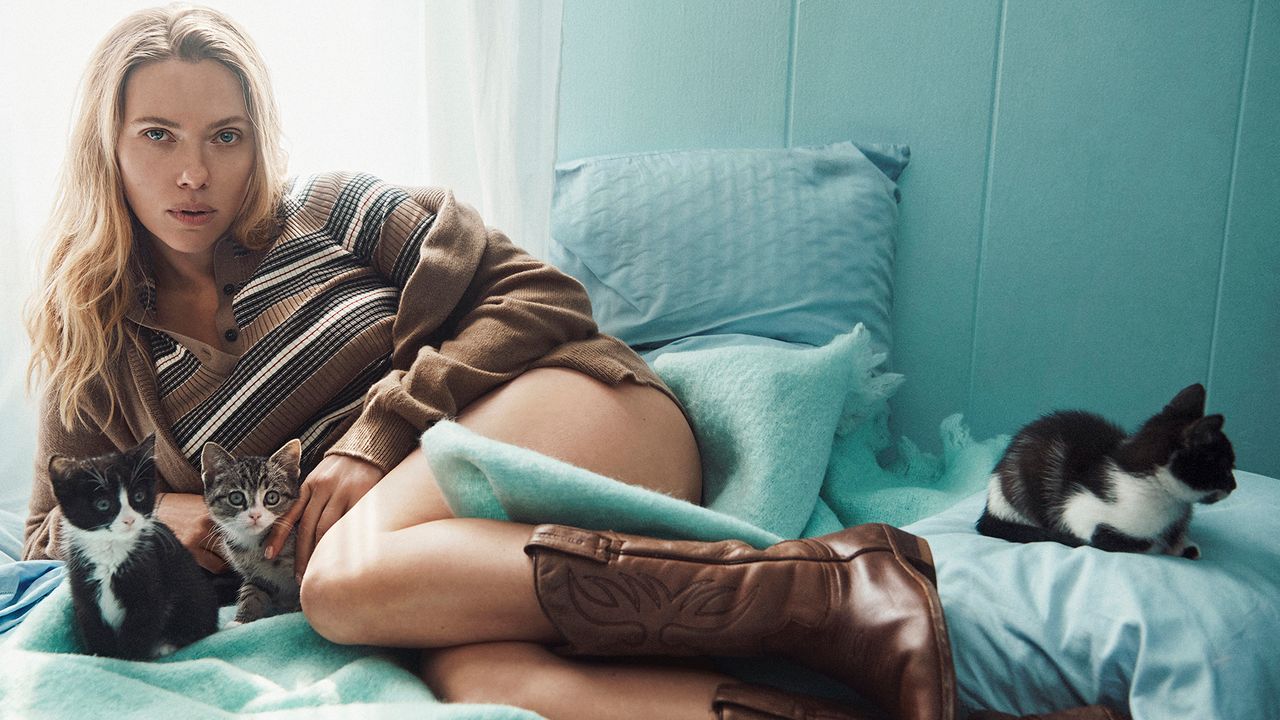While she was shooting Eleanor, Johansson locked in another huge opportunity: the lead of the upcoming movie Jurassic World Rebirth. She went to make
While she was shooting Eleanor, Johansson locked in another huge opportunity: the lead of the upcoming movie Jurassic World Rebirth. She went to make that tentpole across the globe right after filming on Eleanor finished. How different does she think the movies’ budgets were? “I’d say Eleanor was, like, 300 times less.” Her smirk implies a smidge of hyperbole, but this is someone who’s long understood how to balance the multiplex with the art house.
After wrapping an exhausting day on Rebirth, she’d shift into Eleanor postproduction mode. “I was far away, so the time difference worked out where I could then go straight into editing, which was wonderful,” she says. Eleanor came in tight, well under two hours. “Movies are so long now—they’re too long, don’t you think so?” she says. “It feels like a chore.” She’s very pleased that Wes Anderson cut his latest movie, The Phoenician Scheme, in which Johansson plays a petite but memorable role, down to an hour and 41 minutes.
Johansson stands at the park’s railing to fully take in the view. “Isn’t it heaven?” she asks. “God, I haven’t felt sun on my skin for so long.” She’s loosened up in the few hours we’ve been together. When I ask her how she feels about interviews these days, she answers quickly: “I’m always kind of wary because they’re so subjective.” There have been times when journalists wrote up seemingly genuine conversations in ways that surprised her and felt unfair. “I love to talk, and I love to listen and share stories and commiserate and open up—I’m a pretty open book, I think,” she says later. Then she seems to catch herself: “I mean, of course, I’m guarded in some ways—like we all have to be.”
When she was in her teens and early 20s, Johansson was consistently—and blatantly—objectified by male and female journalists alike. “The person would be, like, describing my body—and you wouldn’t expect that to be what the takeaway was,” she says. “They were staring at my lips that whole time? That’s so rude.” She brings up a recent Instagram video posted by Millie Bobby Brown calling out journalists by name who’d written disparagingly about her appearance. “She’s 21 years old, and these are visible writers,” Johansson says. “I guess they still do that. I don’t think that people can do that.”
This animated fed into a period of professional dissatisfaction for Johansson, in part why she’d considered directing so strongly. “After Lost in Translation, every role that I was offered for years was ‘the girlfriend,’ ‘the other woman,’ a sex object—I couldn’t get out of the cycle,” she says. “It sort of felt like, ‘Oh, I guess this is my identity now as an actor.’ There wasn’t much I could do with that.” Her representatives at the time did not assist. “They were reacting to the norm,” she says. “The industry worked like that forever.”
But it’s especially strenuous to navigate when this treatment coincides with the shift into adulthood. “You come into your sexuality and your desirability as part of your growth, and it’s exciting to blossom into yourself. You’re wearing the clothes you want, you’re expressing yourself, then you suddenly turn around and you’re like, ‘Wait, I feel like I’m being’—I don’t want to say exploited because it’s such a severe word.” I tell her the word doesn’t sound wrong to me. Johansson nods. “That term is so heavy, but yeah, it was a kind of an exploitation.”
“Once someone is successful it’s easy to think they were always successful, but she overcame more than anyone realizes to get to where she is,” Jost tells me via email. “She doesn’t lose sight of that when considering what other people are going through.”
Two 2010 projects transformed her career: the aforementioned A View From the Bridge play, for which Johansson won a Tony Award, and Iron Man 2, which turned her into a bona fide movie star. But Johansson was not the first choice to play Natasha Romanoff, a.k.a. Black Widow—Emily Blunt was offered the role. “It felt like everything was aligning, and then it didn’t happen, and I was really devastated by it,” Johansson says. Later, when Blunt had to decline the part because of a conflict, Johansson got what she dubs “the best call ever.” “I remember Scarlett’s camera test like it was yesterday,” Downey tells me. “She leaned into the Black Widow vibe, and we were transfixed. There was this confident stillness and fierce quietness—I’d never seen anything like it. Then we’d call ‘cut’ and she’d flip back into her funny, accessible self, like an on-off mega-charisma switch.”
Johansson went on to star in the Avengers films as the MCU’s most prominent female cast member before bidding farewell with Black Widow. Even though folks like Downey and Chris Hemsworth are making their way back in various forms for Avengers: Doomsday, Johansson really meant goodbye. “It would be very hard for me to understand in what capacity [returning] would make sense for me, for the character that I play,” she says. “I miss my buddies and really would love to be with them forever, but what works about the character is that her story is complete. I don’t want to mess with that. For fans too—it’s important for them.”

COMMENTS